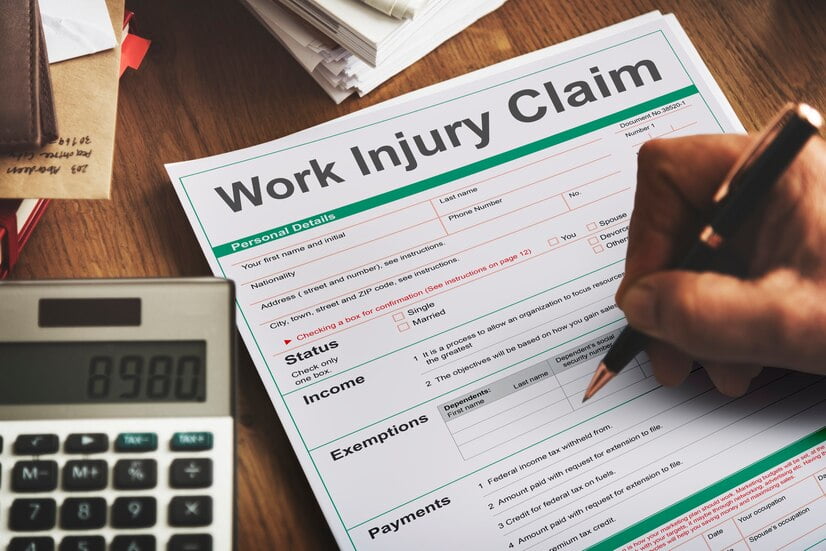

Many states mandate that firms carry insurance at a level of risk that is typical for their sector.
If your state’s workers’ compensation board rejects your claim, you might be entitled to appeal the decision. However, the claim may be rejected for a number of reasons.
An attempt to bill a patient for the difference between what their insurance company has paid them and what they would be charged if they had no insurance is known as balance billing.
Although it is completely unlawful, many people are unaware that it happens.
Additionally, it hinders wounded workers from receiving medical care, benefits, and additional financial aid.
When Can Your Workers’ Compensation Claim Be Denied?

Finding out why your workers’ compensation claim was rejected should be your first step. If you are hurt while engaged in “horseplay” or not working, you can be refused coverage merely because you don’t match the qualifying conditions. However, you can appeal if you think the decision needs to be corrected.
The following are typical grounds for denying workers’ compensation payments. However, this list is not exhaustive:
● The Injury Was Not Reported In A Timely Manner:
The amount of time you have to notify your supervisor of an injury is governed by state legislation. Typically, this period lasts just a few days. In Colorado, for instance, employers must get written notice within four days.
● The Claim Was Not Submitted On Time:
The deadline for submitting an initial claim varies by state. Usually, such an interval lasts between 30 and 90 days.
● Employer Contests Assertion:
Your employer can argue that the incident wasn’t work-related, was the product of play, or had other extenuating circumstances.
● Damages Are Not Compensable:
For instance, it can be quite challenging to establish a claim for stress-related injuries in many states. California, on the other hand, expressly addresses stress-related ailments.
● No Medical Attention Was Required:
Most of the time, to be eligible for workers’ compensation payments, you must seek medical attention.
● Inadequate Proof
Even if it’s not always obvious whether an injury occurred at work, a second medical examination and further proof could support your claim.
Steps To Take When Your Workers’ Compensation Claims Are Deies
If you’ve just had an accident at work and fear that your employer won’t recognize it or report it to the government, you should:
1. Submit A Report Of The Injury

Following an incident or sickness at work, workers’ compensation payments can only be given on notice rather than on the date of the injury.
Potential claimants are still permitted to notify their employers of workplace accidents within 120 days after the incident.
You must tell your employer about an accident within 120 days to be eligible for benefits.
The strength of an employee’s claim is increased if they notify their employer as soon as possible of any work-related illnesses or injuries.
This is so that disagreements are prevented and their employer has enough time to register their FROI with the state before injury-related absences start.
Both verbal and written reports of injuries should be made, as advised.
2. Treat Your Injuries Medically
Your employer is required by law to supply you with a list of authorized medical providers and submit a report with their workers’ compensation insurance company after receiving a complaint of an injury.
Even if your company doesn’t provide you with treatment alternatives, you should still get help (from any qualified provider).
As soon as possible after your injuries, submit any claims to your own health insurance (if applicable). You must tell your healthcare practitioner right away if your injuries are work-related.
The use of medical data as evidence against employers that refuse to report accidents and submit workers’ compensation claims for injured personnel permits your medical records to be updated.
You must also give your medical provider your employer’s name and contact information.
3. Check To See If Your Employer Has Submitted A First Injury Report
If you don’t follow this condition, you risk being charged with a crime and paying significant fines.
The FROI is the initial stage in determining an injured employee’s eligibility for workers’ compensation benefits.
Even if your employer chooses not to submit a workers’ compensation or FROI claim, you may still be eligible for payments.
A claim submitted to the Workers’ Compensation Bureau must have an FRoI from the claimant’s employer to be allowed.
This implies that the claimant will be responsible for covering the costs of their injuries and lost wages.
Employers must submit an FROI to the state on behalf of their employees under the Federal Republic of Ireland’s workers’ compensation system.
Employers that don’t comply with this requirement may be seen to have deliberately obstructed the process.
This activity is an act of “bad faith” in the legal community since it causes you financial harm and hinders your capacity to get compensation.
4. Look For Other Ways To Appeal Your Denied Claims

A Notice of Employers’ Compensation Denial is frequently the outcome of initial workers’ compensation claims.
Despite this, you still have the right to request an appeal hearing before a judge by submitting a claim petition to the Bureau of Workers’ Compensation.
You still have options for appealing if your employer either declines to file or forgets to do so or if you fail to disclose an injury.
A judge can reverse the denial of your workers’ compensation claim and provide you benefits during a workers’ compensation hearing.
Claimants may also pursue financial redress for the financial harm their employer caused them if a claim denial decision is reversed.
Financial awards of up to 50% of past-due medical bill balances, wage loss compensation, plus interest and legal expenses, can be claimed through this process.
Role Of Colleagues In Case Of Injury
Even if they haven’t disclosed it, if you see that an employee has been hurt, bring it up politely and go over the details.
Ask the employee whether they require medical attention, so provide them with a list of hospitals and clinics where they may receive the necessary treatment.
Take fast action to report the occurrence and investigate the circumstances surrounding it if an employee is injured.
Filling out the papers to report injuries does not absolve you of responsibility; on the contrary, it may give you protection.
If the injury is not reported immediately, there may be far more expensive claims.
Additional:




























